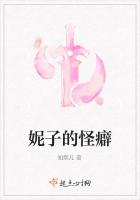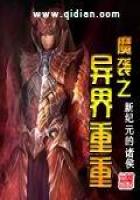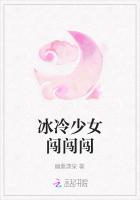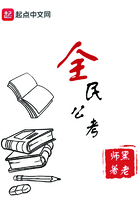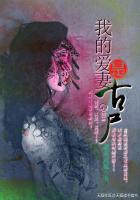Radical treatment for healthcare
Reform a boon for patients, gloom for clinics.
Hu Yinan reports from Anhui.
When farmer Wang Shunde visited his village medical clinic in eastern Anhuiprovince with a stomachache, his doctor diagnosed him with acute enteritis, gavehim an infusion and prescribed four drugs.
Ordinarily, the bill given to the 56-year-old as he left the clinic on Aug 31 would havemade him feel worse than the swollen intestines he arrived with. However, as a residentof the impoverished Qianshan village in Shexian county, a pilot zone for rural medicalreforms, he received a 10-percent discount on the drugs.
One day later, the price-cutting initiative was rolled out across the province, allowing57 million people to benefit from efforts to radically restructure the profit-driven townshipand village medical institutions, the backbone of China’s three-tiered healthcare system.
Anhui is the first province to start a full-scale reform of its grassroots health networksince the spring of 2009, when the central government unveiled plans to spend 850 billionyuan (125 billion) to introduce an essential drug system and offer universal access to basicinsurance.
“The purpose of the initiative is to abolish the existing system, which relies on healthproviders selling drugs to fill their financing gap,” said Gao Kaiyan, director of Anhui’shealth bureau and the mastermind behind the reform. “It’s the first such experiment in ourcountry.”
Following the collapse of community-funded healthcare for farmers in the early1980s, market-oriented reforms helped privatize the sector.
Government spending fell from 36 percent of the total health expenditure in 1980 to15 percent in 2002, according to figures from the Ministry of Health.
While government budgets for health institutions diminished, the liberalization of thepharmaceutical market drove up the prices of medicine considerably. Hospitals were ableto sell drugs at a 20- to 30-percent markup over wholesale costs.
As a result, the amount being shouldered by individual patients soared from 21percent in 1980 to 59 percent in 2000. In Anhui, the average inpatient charge in townshiphealth centers rose 251 percent between 2005 and 2009.
“For a long time now, 60 to 70 percent of grassroots health institutions run onthe profits they make from medicine prescriptions,” said Gao. “The more a physicianprescribes, the higher their revenue. This results in irrational drug use, over-prescription ofantibiotics, the corruption of health workers and high drug prices.”
An industry veteran of almost three decades, Gao says his comprehensive reform isnecessary to “break the system”.
Since Jan 1 2010, Anhui has launched a series of bold measures involving 4,811health clinics in 32 pilot counties, affecting more than 20 million people. The reformincludes reinstalling a public-purpose grassroots health system by thoroughly reshufflingexisting mechanisms to deal with administration, personnel, income distribution and pay.
The move has brought township and village clinics back under the umbrella of countyhealth bureaus, which, together with finance and labor authorities, are responsible forapproving personnel quotas, fixing budgets and evaluating work.
Rather than being offered permanent employment (a core component of thecooperative medical system under the planned economy), grassroots health workers inAnhui are now contracted to avoid egalitarian practice and encourage good performance.
Provincial authorities have also taken control of the bidding for, buying, supplyingand distributing of all 479 medicines on the compiled essential drugs list (it has 172 moredrugs than the State formulary of basic health insurance), which was previously handled byphysicians in towns and villages.
The measures helped cut the prices by about 50 percent in the pilot sites during thefirst half of 2010, according to Anhui’s health bureau.
Gao hailed the reform as “orderly, powerful and efficient” in regulating drug costs,combating irrational drug use and streamlining the personnel structure of grassroots healthproviders.
Money injection
To continue the reform, the province will need to spend roughly 1.7 billion yuan ayear. The vast majority will go to township health centers, while the rest will be spent invillage clinics run by 67,000 rural doctors. However, significant challenges remain and asGao puts it: “Any reform is a radical adjustment of interests … our greatest problem is thepeople problem. Local officials historically governed township health clinics in Anhui andtheir relatives too often occupied a majority of posts there.
“Our investigations found that although many of these clinics had 20 to 30 staffers,they relied on just three to four people who actually worked,” he said. “The others wereilliterate or barely finished elementary school. No sustainable development can be achievedwithout abolishing this personnel system.”
Even after failing to obtain the proper accreditation, the sheer number of redundantstaff, particularly in poor and remote counties, suggests they cannot simply be let go.
For example, half of the grassroots health staff in Guzhen county were asked to leavetheir jobs under the pilot initiative - but only 13 actually did so. About 340 workers wereinstead put on a three-year paid probation period.
In an August report to provincial authorities, county officials argued that thecompensation they need to pay for redundancies - an estimated 5.4 percent of thecounty’s 2010 financial revenue - is too great a burden.
To avoid the issue spiraling into a crisis, Anhui authorities will inject 400 millionyuan in 2010 to pay off more than 20,000 unaccredited medical personnel, some of whomwill receive administrative posts instead of being fired.






